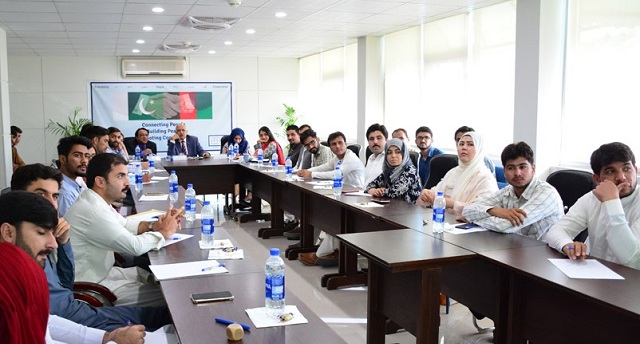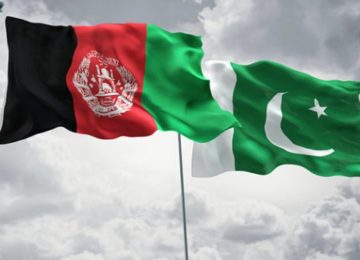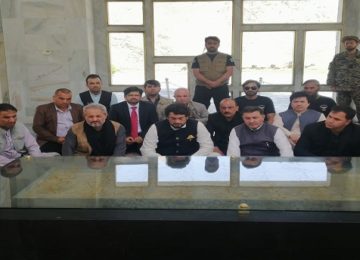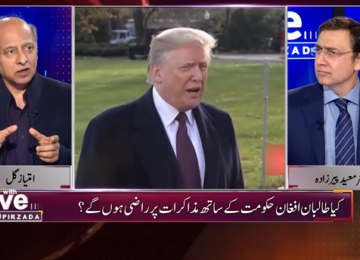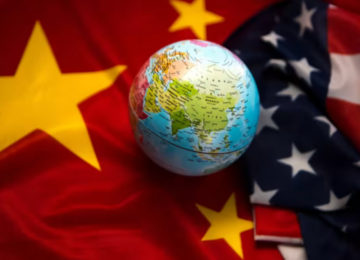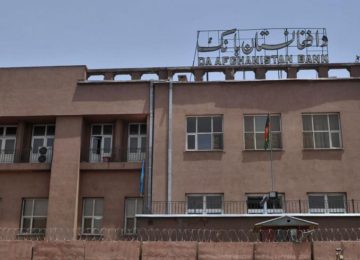August 30, 2018
Regional as well as global security dimensions are changing fast. New alignments and realignments are in the making; unexpected blocks are emerging. In this scenario, Pakistan and Afghanistan are no different. Both of these countries, too, are trying to keep up with the expeditiously unfolding nuances. It is in this context that a need for joint framework or mechanism, especially one on the security aspect, was felt; materializing into Afghanistan Pakistan Action Plan for Peace and Solidarity in May this year, said Lt. Gen. Asif Yasin Malik, former Defense Secretary, who was the Chief Guest and Keynote Speaker at the 15th Pak-Afghan Youth Dialogue at Afghan Studies Center on August 29, 2018. Speaking to the youth present at the dialogue from Afghanistan and Pakistan, he stated that all this augers well for future bilateral cooperation. The dialogue was attended by 25 young Afghans and Pakistanis belonging to Kohat, former FATA (now part of Khyber Pakhtunkhwa), Hangu, Peshawar, Kabul, Jalalabad, Kunduz, and other cities from both countries, and mostly enrolled in universities in Islamabad.
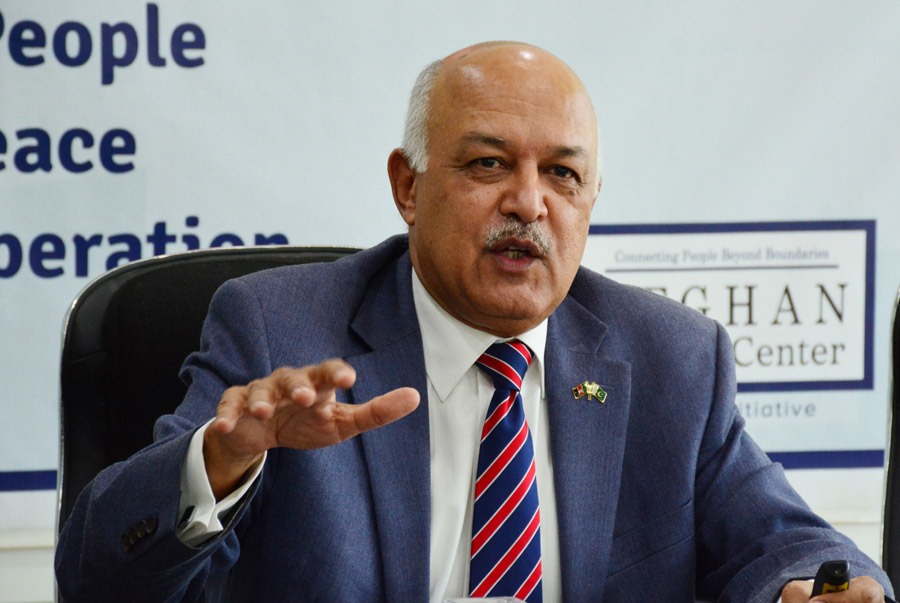 Lt. Gen. Asif told the participants that the APAPPS framework manifests the intent from both sides to work together and seek solutions to issues of mutual concern; the most promising factor about APAPPS is its exclusive Pak-Afghan bilateralism.
Lt. Gen. Asif told the participants that the APAPPS framework manifests the intent from both sides to work together and seek solutions to issues of mutual concern; the most promising factor about APAPPS is its exclusive Pak-Afghan bilateralism.
Pakistan and Afghanistan are in a transition-stage, though from different perspectives, he highlighted. Pakistan is moving forward towards an improved form of democracy and good-governance, while the Afghan people, having tasted the flavor of democracy, institutionalization, education, and women’s rights to an extent, do not wish to go back to the Taliban era; they want to move forward.
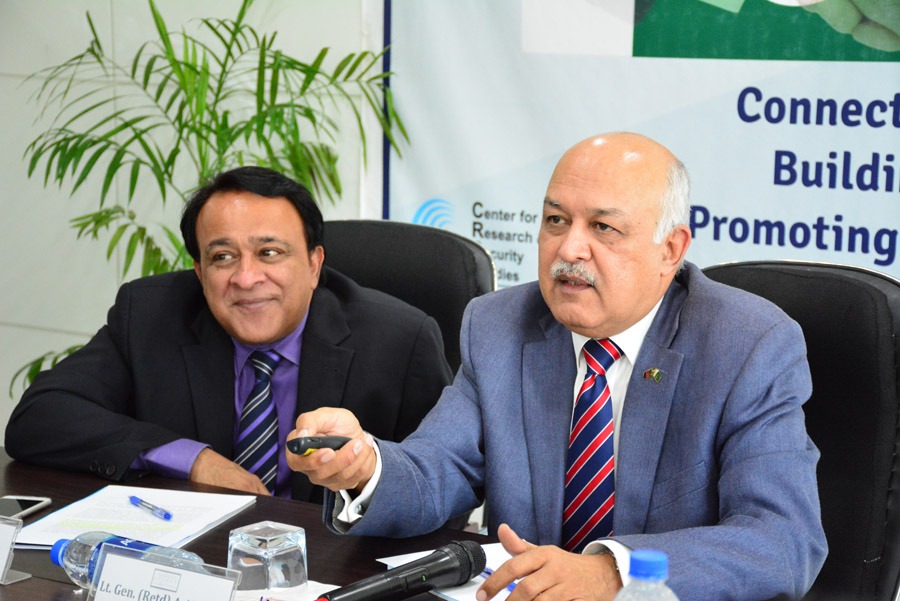 Today, Pak-Afghan relations cannot be viewed without keeping in consideration the unprecedented circumstances in the context of global politics, where American dominance is shrinking gradually. Firstly, because of the active role of China and Russia in the international and regional affairs and, secondly, due to the inward-looking policies of the Trump administration. China is rising in the international power game, not only economically but also in the military domain; while Moscow, on the other hand, is flexing its muscle again to regain the status of former Soviet Union.
Today, Pak-Afghan relations cannot be viewed without keeping in consideration the unprecedented circumstances in the context of global politics, where American dominance is shrinking gradually. Firstly, because of the active role of China and Russia in the international and regional affairs and, secondly, due to the inward-looking policies of the Trump administration. China is rising in the international power game, not only economically but also in the military domain; while Moscow, on the other hand, is flexing its muscle again to regain the status of former Soviet Union.
Once a most trusted ally of the US, Turkey, too, is now at daggers drawn with the Trump administration, while Iran continues to face extreme US hostility and sanctions, on the other hand. All these regional dynamics have implications for Pakistan and Afghanistan and places them in a Catch-22 situation where they have to use extreme caution while choosing options that can be sustainable for bilateral peace and development. 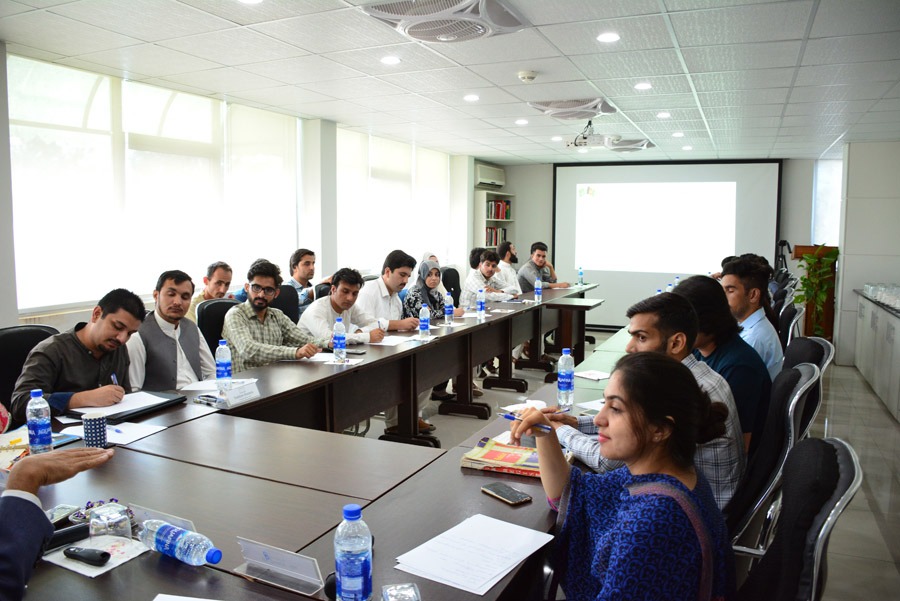
He further stated that, among the seven principles of APAPPS, the first, and also most important, point is that Pakistan supports an Afghan-owned and Afghan-led peace process. With that, a regional approach including all the neighbors is the only way forward to harness peace in war-torn country.
Speaking on the role of the new government in Pakistan, Lt. Gen. Asif Yasin quoted Pakistan’s newly appointed Prime Minister’s victory speech where he stressed that peace in Afghanistan is critical for regional stability. The new government’s stance regarding the Afghan conflict is that kinetic or military solution will not bring peace in Afghanistan; it has to be followed with dialogue and negotiations. Furthermore, the new government reaffirmed the view that while the resolution of the Afghan conflict should be Afghan-led and Afghan-owned, regional efforts are also best suited for the way forward. Lt. Gen. Asif Yasin stated that PM Imran Khan’s victory speech shows the importance the new government gives to Afghanistan where he stressed that peace in Afghanistan means peace in Pakistan.
He further went on to add that there have been significant developments which bode well for the peace and prosperity in Pakistan and Afghanistan. First, the military operations inside Pakistan have gone down to minimum, signaling a better security situation. Second, once the buffer-zone and poorly governed, FATA has now merged with KP, leaving little space for unwanted activities. Third, border management and trade linkages between the two neighbors are seeing signs of improvement. Furthermore, CPEC has the potential to be a game changer if extended to Afghanistan, paving way for sustainable economic development.
In the Q & A session, participants raised several questions regarding the sustainability of APAPPS, developments on Pak-Afghan trade and connectivity, the role of social media and blame game between the two countries.
Responding to questions by the young participants, Lt. Gen. (retd.) Malik said among many positive developments, one worthy of mention is the improvement in trade and transit cooperation between Pakistan and Afghanistan. Leaders from both sides have pledged to resolve issues in this regard. Former PM Abbasi’s visit to Kabul earlier this year was significant in creating an enabling environment for mutual cooperation, following which Afghan President Ashraf Ghani sent a high-powered delegation which held wide-ranging talks with Pakistani officials in Islamabad. Owing to these meetings, 80% of the issues regarding trade and transit have been resolved amicably.
Commenting on the role of social media, he felt that the medium is an important tool for youth to change perceptions and counter negative narratives. He stressed that the youth can use social media for positivity and connectivity between the peoples of both countries, and refrain from believing or circulating every post on Whatsapp, Twitter and Facebook, without verifying. Expressing his views regarding the political blame game, he narrated an anecdote. He said that when siblings fight in a house, what do the elders advise? They always tell them to ‘keep it low’, so that the neighbors do not hear them. Same is the case with Pakistan and Afghanistan. We are both brothers, and brothers naturally tend to fight; there is no harm in occasional fighting as long as it stays in the house. Hence, we should sort it out between ourselves rather than allowing any foreign interference in our bilateral matters, he stated.
CRSS Project Director Aized Ali, who was moderating the session, apprised the participants about the ongoing CRSS Pak-Afghan Track 1.5/II Initiative ‘Beyond Boundaries’ which has so far convened 15 high level unofficial meetings since 2015 between the two Pak Afghan influencers’ groups, involving over a hundred experts from Parliament, retired civil and military bureaucrats, media and civil society leaders. Mainly in Kabul and Islamabad, but also in other major cities such as Karachi, Lahore, and Mazar-e-Sharif, these meetings and their follow-up activities aimed to bridge the gulf of mistrust and improve bilateral relations between Pakistan and Afghanistan. He told the participants that the Afghan Studies Center emerged from the ideas discussed at Beyond Boundaries in an effort to provide the youth of both countries a platform to inculcate critical, creative and out-of-box thinking, and to dispassionately interact, exchange ideas and cooperate to remove the distrust and misperceptions that exist.
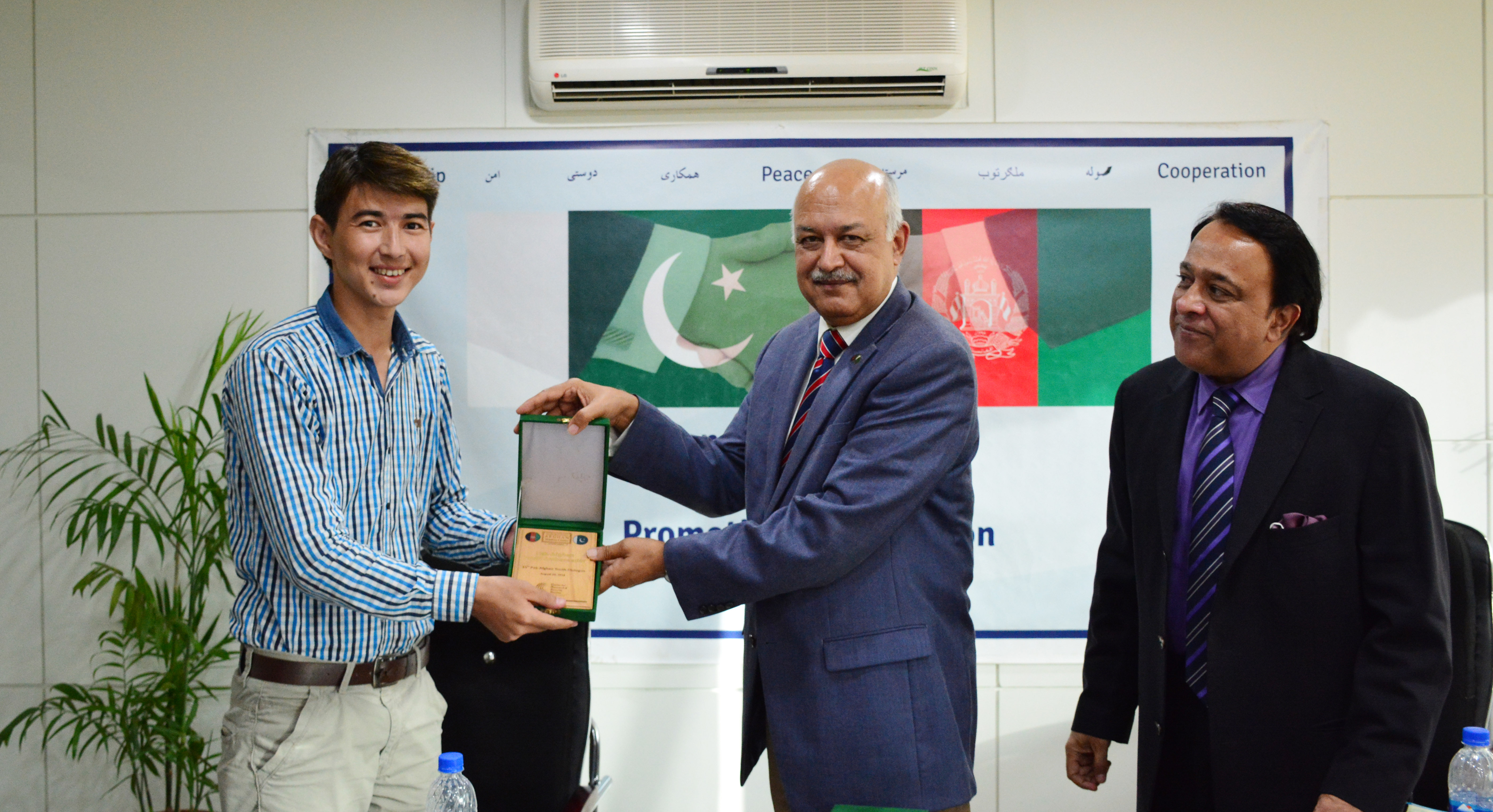
At the end, the Afghan Studies Center (ASC) team nominated Abdul Sattar from Afghanistan as the Pak-Afghan Youth Ambassador for the month of August 2018, who was then presented a shield by the Chief Guest. The ASC team also presented an honorary shield of appreciation to the Chief Guest, Lt. Gen. (Retd) Asif Yasin Malik.
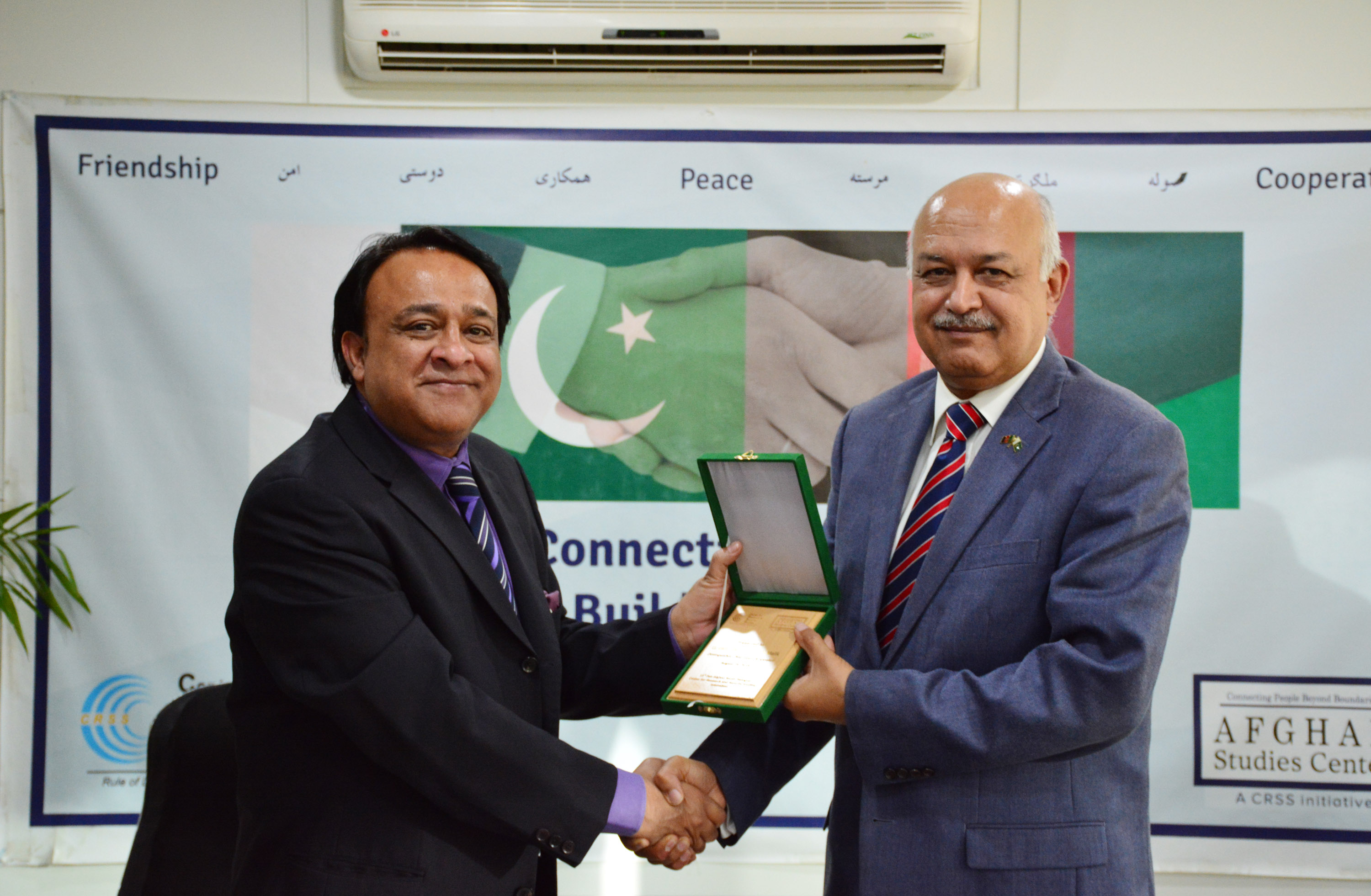
This was the 15th Pak-Afghan youth dialogue held under the Afghan Studies Center initiative of CRSS which has now an alumni of over 400 Pakistani and Afghan youth now. Afghan Studies Center aims at encouraging peace narratives and critical thinking through its monthly Pak-Afghan youth dialogue series, and quarterly training workshops, which focus on the skill development and capacity building of emerging future leaders from both countries.
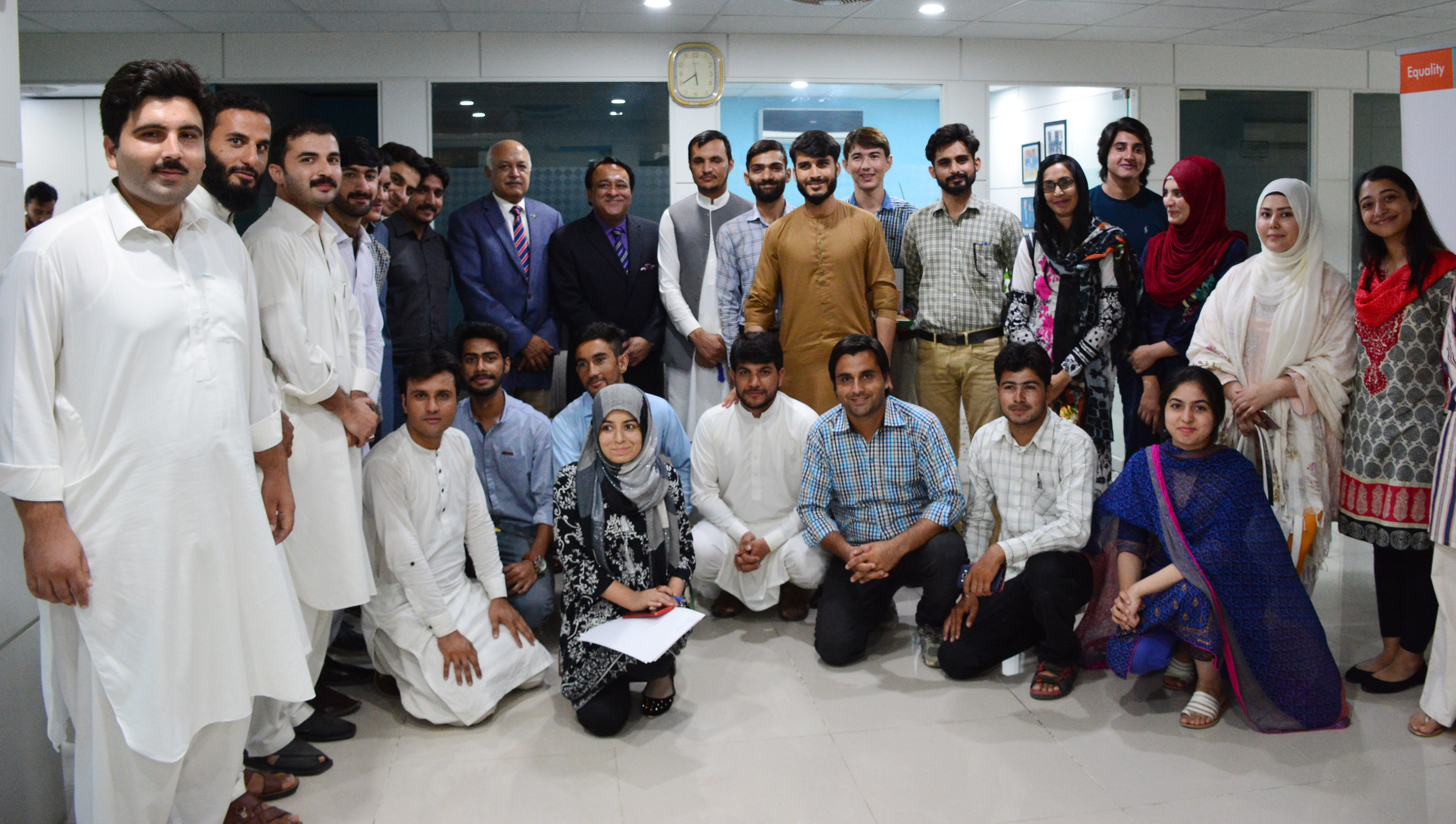
© Center for Research and Security Studies (CRSS) and Afghan Studies Center (ASC), Islamabad.



